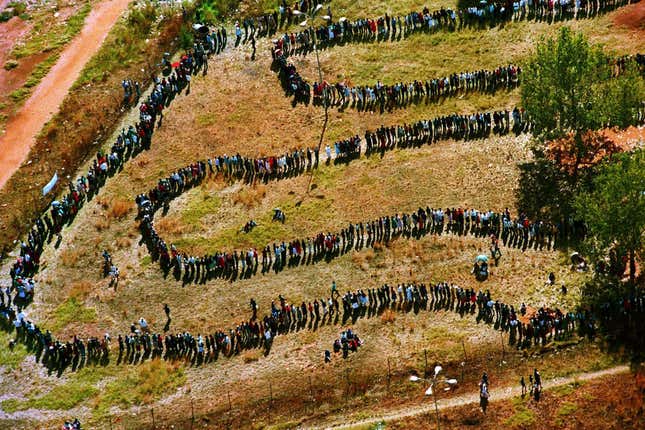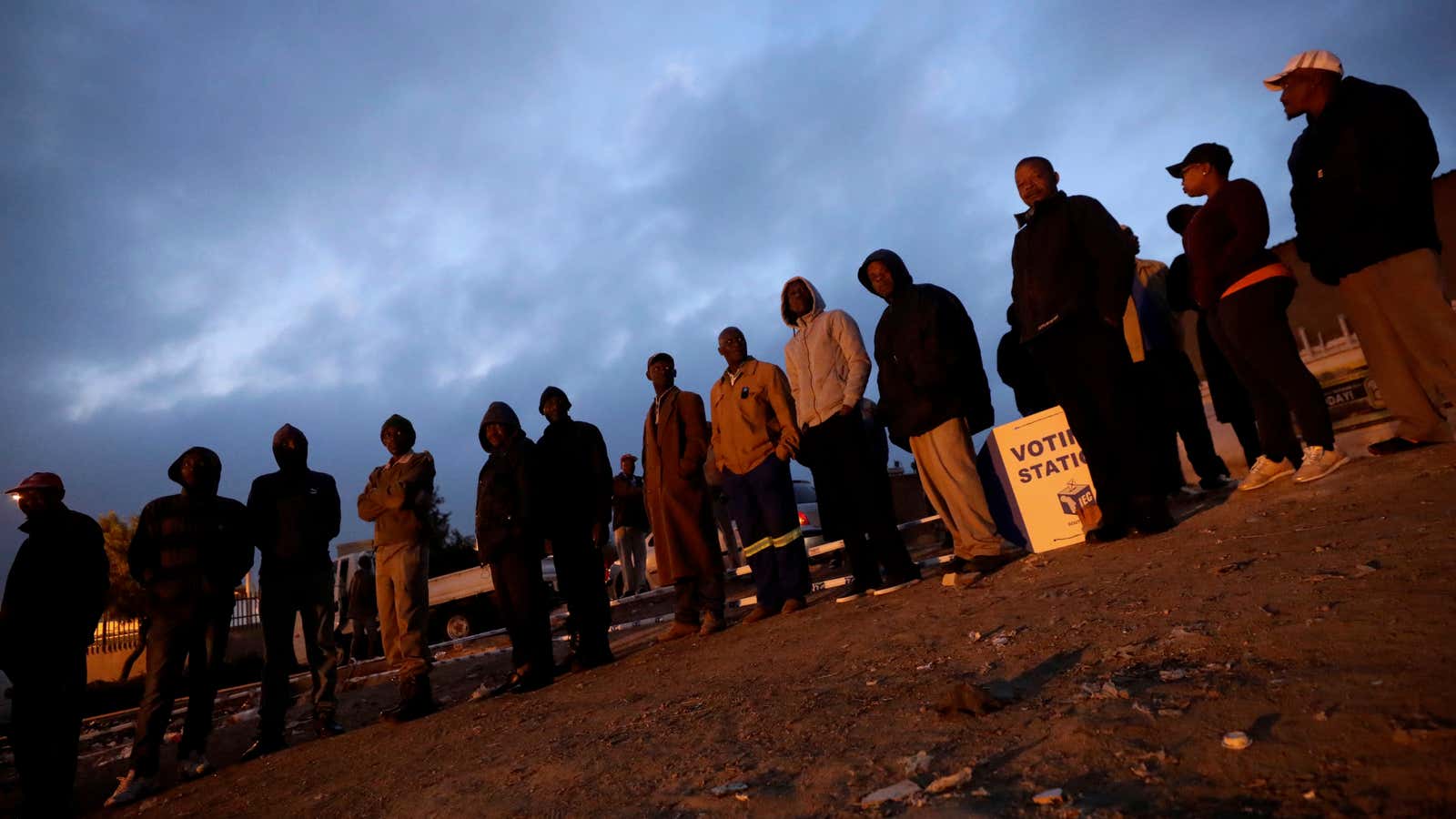Sleeping in could be a sign of protest in South Africa’s on May 8 election. As the country heads to the polls 25 years after its first euphoric election, disillusionment has set in, particularly among those who are as old as South Africa’s democratic regime—the twenty somethings.
Universal franchise is still a relatively new concept in South Africa, so much so that democracy in South Africa is itself a twenty something. The first democratic election in 1994 was met with the excitement from celebrating the end of apartheid. A generation later, the act of voting is no longer as exciting and the realities of enduring inequality have taken their toll. While some have argued that this is a sign of apathy, others argue that there are other ways to exercise democratic freedom.
Nine million South Africans eligible to vote have not registered to vote, most of them young people, 46% of this group are aged 20 to 29, according to the Independent Electoral Commission. The numbers were disappointing for the commission, which has embarked on its own campaign to get young people to register.
The commission employed slang and sleek marketing but failed to convince many in this cohort, even if they did get them to register. It was clearly not about the logistics of voting—after all, it is a public holiday—but rather the state of South Africa’s political landscape. In a country where people literally died for the right to vote, it’s an unpopular opinion but one that is growing.
“I am one of the young people that have registered to vote, but I will not be voting this year. From the work that we have done and the places we have been to, there is a general sense of hopelessness,” said Pearl Pillay, the managing director of the NPO Youth Lab. The youth-run organization put together a Youth Manifesto unpacking parties’ youth-centric policies. In townships and rural areas, young people felt left out by South African party politics.
“When you don’t see yourself in the system, you opt out,” Pillay, 27, told Quartz.

For Pillay and others staying home today, not voting is as much about exercising freedom, it’s an alternative form of democracy. There are 19 new parties on the national ballot since the 2014 election, bringing the number of parties contesting the election up to 48. While jobs were a common manifesto theme, the messages failed to translate to young people. Instead, young people have been politically active, creating community groups and discussion forums. Also, to assume that everyone who is voting has grappled with the policy issues is disingenuous, she adds.
In the hours before polls opened, #IWantToVoteBut trended on social media. Apart from a few memes, most of the tweets expressed the frustration of young people, particularly limited job prospects.One tweet in particular, by a young man who claimed to be the son of one of the miners slain in the Marikana massacre.
Social media trends aren’t a broad enough barometer of the public sentiment, though. The wave of protests that gripped the country in the weeks leading up to the election were a clear measure of boiling frustrations. Disgruntled impoverished communities across the country organized shutdowns, barricading main roads and marching. Many of the marchers were young people. On Wednesday, pockets of protests flared up again, though voting stations were spared. While community demands have differed, the sentiment has been the same, voting has brought no change.
“You’ll be protesting against the same people who you left in power,” says Tebogo Shuping, a youth election observer for Activate, a youth leadership programme. Shuping, 35, is worried about the voter turnout she’s observed at polling stations around Johannesburg. The grey skies aside, she’s not seen as many young people as she’d hoped.
“It’s important for young people to be a part of the whole electoral process, not just the voting,” Shuping said. Activate has also put together a manifesto, one they hope will teach communities how to keep their officials accountable after election day. Shuping concedes that this particular poll has been difficult, marking the generational shift between parents and children.
The consistency that has ensured South Africa’s relative socio-economic stability may now be its downfall. Even with a longer ballot, the ANC-dominated landscape is likely to remain unchanged. Even with a new face as president, Cyril Ramaphosa’s ANC faces many of the same issues that Jacob Zuma’s regime did. The margins may be lower, but frustrations may be higher.
Sign up to the Quartz Africa Weekly Brief here for news and analysis on African business, tech and innovation in your inbox
